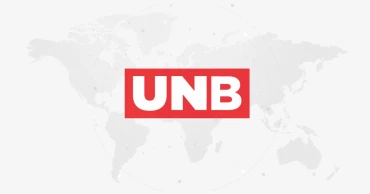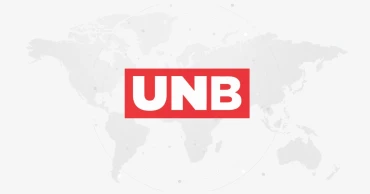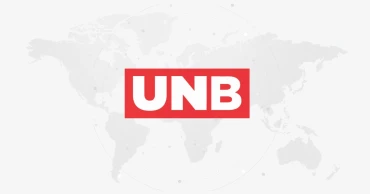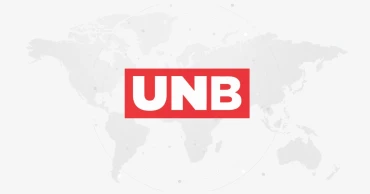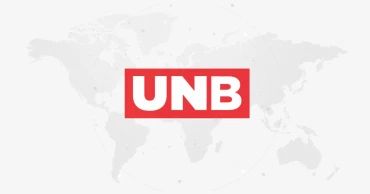US dollar crisis
PM Hasina launches Taka Pay, first-ever local currency card, to save costly dollars
Prime Minister Sheikh Hasina on Wednesday (November 01, 2023) launched local currency card Taka Pay to reduce dependency on international card schemes like Visa and Mastercard and save much-needed US dollars.
Bangladesh Bank introduced the card, first of its kind in the country.
PM Hasina inaugurated the card from her official residence Ganabhaban. She was connected virtually with the headquarters of state-owned Sonali Bank, private City Bank and Brac Bank.
The three banks have been given responsibility to issue the Taka Pay card in collaboration with the central bank.
'Taka Pay' will provide the same service nationally through the use of 'The National Payment Switch of Bangladesh', an electronic payment platform operated by the BB.
Initially, the card can be used within the country. Later the central bank will introduce Taka-Rupee card which can be used for shopping in neighbouring India.
Electronic transfer of taka is done through Visa and MasterCard payment networks of business institutions including banks and other financial institutions.
These entities offer branded payment processing services for credit, debit, and prepaid cards. Domestic card 'Taka Pay' will provide the same service, the BB sources said.
It can be used abroad once foreign banks and institutions partner with the platform. It will reduce the cost of foreign exchange. Because foreign companies have to spend a lot of money on service charges.
From the beginning, this card can be used at all ATMs, points of sales and online platforms in the country.
PM Hasina to launch 'Taka Pay' card Tuesday: BB
Initially it will be used as a debit card but in the future Taka Pay credit card will also come.
Magnetic strip is used for security of this card. But now the new EMV technology with added security has been introduced in all bank cards. Gradually Taka Pay card will also be introduced with EMV technology.
Paris-based consultancy Fime developed the card.
Bangladesh’s neighboring countries also have their currency cards. India has card 'Rupee', Pakistan 'Pakpay', Sri Lanka 'Lonkapay'. Saudi Arabia has 'Mada'.
Election will be on time, BNP can’t stop it, says PM Hasina at press conference
At the outset, a video documentary on the Taka Pay was screened.
Two freedom fighter customers of Sonali Bank withdrew money from City Bank's ATM using Taka Pay Card.
Central bank governor Abdur Rauf Talukder was present among others at Ganabhaban.
Prime Minister's Principal Secretary M Tofazzel Hossain Miah moderated the function, while BB Governor Abdur Rouf Talukder delivered welcome address. BB Executive Director Mezbaul Haque presented different aspects of the national card scheme “TakaPay”.Sonali Bank Managing Director Afzal Karim, Brac Bank Managing Director Selim RF Hossain and City Bank Managing Director Mashrur Arefin at their offices demonstrated the usage of TakaPay card, online payment and withdrawal of money from ATM where the users received the services.
PM Hasina describes as successful her visit to Belgium for Global Gateway Forum
2 years ago
Growing backlog in payments to independent producers a bottleneck in power sector
The growing backlog in payment obligation is emerging as a major problem in Bangladesh's power sector that may impede the growth of the sector.
According to official sources, the payment mode in Bangladesh Government's power purchase agreement (PPA) with the private sector has mainly been made in foreign currency, specially, the US dollar.
As per the existing arrangement, as a single payer the state-owned Bangladesh Power Development Board (BPDB) pays to the private power producers in local currency against its purchase of electricity.
Under the PPA, the private power producers are allowed to convert the payments into US dollars to meet their different kinds of payment obligations like bank loan, fuel and machinery imports and also paying foreign staff salaries.
If the investors are foreign companies, they can repatriate their profits in US dollars, said the officials of the BPDB.
They also noted that the BPDB always remains in constant contact with power producers, their banks and the central bank to smooth the foreign currency repatriation.
But following the dollar crisis in the country, official sources said in recent months, both the BPDB and the private power producers have been experiencing severe problems in getting dollars from their banks and also from the Bangladesh Bank.
Official sources said the BPDB has been struggling to keep up with its payments owed to the private power producers for more than a year.
Officials at the Power Division and BPDB said currently the total owed to the Independent Power Producers (IPPs) is $3.5 billion (equivalent to over Tk 35,000 crore) as of September 2023.
Read: Rooppur Nuclear Power Plant to receive fresh batch of uranium from Russia’s Rosatom at ‘Graduation Ceremony’ tomorrow
As per contract with the government, the IPPs are facing dual problems with their bills. First, they are not getting bills on time and secondly, they are getting partial bills, but not being able to convert the payment into foreign exchange due to the dollar crisis.
A top BPDB official admitted the problem to UNB, saying that they had reached an understanding with Bangladesh Bank under a mediation of the Finance Ministry that the central bank will provide on average $20 million every day to BPDB to cover its costs.
“But we’re not getting more than $10-15 million a day,” a top BPDB official told UNB on condition of anonymity as the issue is very sensitive and he is not allowed to speak on the issue.
He also said that if measures are not taken to contain the growing dues in the power sector it will further aggravate the problem.
Read: Japan provides $1500 million to implement Matarbari coal-fired power plant
Admitting about the payment backlog, Imran Karim, former president of Bangladesh Independent power Producers Association (BIPPA), said the government should take necessary measures to clear the dues in the power sector.
"Otherwise, it will accumulate the dues and create a major problem in the sector", he told UNB.
Energy experts said the country is heading for problems in the power sector and it would have a big impact on the overall economy pushing up inflation further.
Eminent energy expert and advisor to the Consumers Association of Bangladesh (CAB) Prof M Shamsul Alam said the government has been put in such a major problem because of its wrong planning in the power sector.
He said that as a result of the wrong planning, the country is witnessing 50 percent surplus power in summer and 70 percent in winter, for which it is heading towards a disastrous situation.
“There will be a big indiscipline in the power sector as pressure for private sector’s capacity payment will continue to go up while import of primary fuel will be increasing. Finally, it will lead to energy insecurity,” he told UNB.
Read more: Cabinet purchase body approves proposals including 3 solar power plants in private sector
2 years ago
Despite challenges, govt hoping to restore economy’s pre-Covid momentum in current fiscal
The government of Bangladesh is hoping to return the economy to its pre-COVID growth momentum by the end of the current fiscal (2023-24), although that presents a significant challenge in the face of a clutch of economic headwinds.
The government’s vision for economic recovery is outlined in the "Medium Term Macroeconomic Policy Statement 2023-24 to 2025-26," prepared by the Macroeconomy Wing of the Finance Division, under the Finance Ministry.
It maintains that with the onset of the pandemic in 2020, the economy was knocked off its fast-paced growth trajectory for large parts of the last three years. The first confirmed cases of Covid-19 in Bangladesh were reported in March 2020, less than three months after the outbreak in Wuhan.
Recently published quarterly GDP data (in keeping with a condition set by the IMF) bears this out. It reveals that the economy contracted by a massive 7.86 percent in the last quarter of the 2019-20 fiscal (April to June 2020), as the virus spread throughout the globe.
Read more: Financing, technology and innovation needed for just transition to greener economy: Shahriar Alam
According to the quarterly data released retrospectively by the Bureau of Statistics (BBS) last month, GDP had grown by between 6.5 to 8 percent in the first three quarters of 2019-20. That reflects the extent to which the wind was knocked out of the economy by the negative growth (contraction) in the fourth quarter.
The slump induced by Covid would keep economic performance depressed through the first two quarters of the next fiscal (2020-21). It wasn’t until the 3Q (January to March, 2021) that the first signs of a recovery would become visible.
As the 2021-22 fiscal kicked in, Bangladesh looked ready to put Covid-19 behind it, having implemented a successful vaccination programme and lifted lockdown restrictions. The economy rallied robustly, and GDP growth touched 10 percent in the third quarter (January to March 2022).
Yet even as the recovery was underway, the seeds for it to stumble were sown halfway across the globe, with Russia going to war in Ukraine in February 2022. The resulting volatility in international energy markets and supply chain disruptions would knock the momentum out again, of the country’s post-Covid recovery.
Read more: World Bank forecasts Sri Lankan economy to grow by 1.7% in 2024
Although there was nothing like the contraction precipitated by Covid-19, the economy did experience a severe slowdown in the last quarter of FY22, slipping to just 2.6 percent from the previous quarter’s high of 10 percent.
“Bangladesh also braced for impacts on its economy. However, actual data shows that Bangladesh did impressively even during the height of the Covid-19 outbreak and is expected to return to pre-Covid growth trajectory by the end of FY 2023-24,” the statement surmises.
If everything goes according to plan and ‘assumptions hold’, it says that 8 percent GDP growth rate can be attained again in 2025-26.
“Therefore, the deviation of the actual from the planned growth envisaged in the 8th FYP (Five Year Plan) remained small,” it said.
Read more: Bangladesh economy hit hard by Ukraine war
The Macroeconomic Policy Statement mentions capital accumulation is key for development and hence the government aims to foster private investment along with public investment towards fulfilment of its goals..
Total investment in FY 2021-22 stood at 32 percent of GDP in which the contribution of the private and the public sectors were 24.5 and 7.5 percent, respectively. To achieve the long and medium-term growth targets, the level of investment will need to be increased further.
The statement points out that there is room to increase the implementation rate of public investment. If the pace of implementation of development projects can be increased, the required level of investment can be attained.
“Recognising this, the government has taken steps to bring about some structural changes in both project design and implementation levels,” it says in the statement.
Read more: BGMEA-Circle Economy ink MoU to accelerate garment, textile sector’s transition towards circular economy
The Finance Division document said that the Russia-Ukraine war has put global energy supplies at risk. Russia is a major global supplier of energy and hence when the war broke out, commodity prices spiked fast.
Bangladesh started to suffer from this like almost all other countries. By December 2022, point-to-point inflation rose to 8.7 percent and then further rose to 9.3 percent by March 2023.
However, global commodity prices are already falling, and central banks have raised policy rates and because of this it is expected that inflation will come down in the coming months.
The IMF has projected that the measures taken by the governments will help reduce inflation in the medium-term. The Finance Division has projected that average inflation will fall significantly to 6.0 percent in 2023-24, although there has been no indication of it through the first quarter (July to September).
Read more: Bangladesh Budget 2023-24 passed in parliament
In order to tame inflation and protect the incomes of the poor, the government has emphasised increasing the domestic production of essential items, while gradually tightening monetary policy.
The document says that food inflation hurts the poor the most. Keeping this in mind, the government through various measures, including subsidies and incentives, encouraged the growth of agricultural output.
To support the agriculture sector, disbursement of credit to the sector has been increased.
By the end of February 2023, the disbursement of agricultural credit and non-farm rural credit amounted to Tk. 210.66 billion in the first 8 months of the last fiscal, which was almost 14 percent higher, year on year.
Read more: Why inflation persists at a higher level in Bangladesh
With the help of supportive policies of the government, the general index of industrial production (medium and large-scale manufacturing) has been on the rise, reflecting expanded industrial production.
Dr Masrur Reaz, a prominent economist and public policy analyst, believes it would be very challenging to regain the pre-Covid momentum within the current fiscal, since a number of macroeconomic indicators have become unstable.
Talking to UNB, he suggested the government focus on stabilising the macroeconomic situation first, which would make the economy more sustainable in the long run.
Dr Reaz pointed out that high inflation, severe foreign exchange/dollar crisis preventing, among other things, opening of LCs, and the fluctuating value of domestic currency taka, should be resolved first.
Read more: Businesses should get opportunities to turn around before wholesale declaration of loan defaulters: FBCCI President
“To bring the economy back to its pre-Covid growth rate, these issues should be resolved first, which itself would be very challenging and difficult in a short time,” he opined.
Explaining further, Dr Reaz said: “The time is to stabilise the economy rather than focus on growth. In the long run, the economy will grow through reducing the high rate of non-performing loans, keeping inflation within reasonable limits and achieving exchange rate stability.”
2 years ago
Despite Bangladesh Bank Governor’s decision to not raise exchange rate before election, dollar rate hiked again
Bangladesh Bank decided not to bring major changes in the US dollar exchange rate before the upcoming national election. The central bank’s Governor Abdur Rouf Talukder informed of this decision at a meeting with managing directors and CEOs of banks recently.
At that meeting, the governor said that Bangladesh Bank will not make any policy changes regarding the dollar market or the foreign currency market before the national election.
Despite this decision, the dollar rate has been raised by Tk .50 or 50 paisa in all cases. The price of the dollar has increased to Tk 110 in case of export and expatriates’ income, and to Tk 110.50 in case of import.
Read: Selling dollars at higher prices: What is Bangladesh Bank’s action against treasury heads of 10 banks?The dollar rate was hiked again yesterday, which is effective from today.
The dollar crisis in the country has become evident since March 2023, following the downturn caused by the Russia-Ukraine war.
To deal with this crisis, Bangladesh Bank fixed the dollar price at the beginning. This worsened the crisis. Later, last September, Bangladesh Bank withdrew from determining the price of the dollar.
Read: Bangladesh Bank seeks explanations from 13 banks for selling dollars at higher prices
This responsibility has been given to the Association of Bankers, Bangladesh (ABB) and Bangladesh Foreign Exchange Dealers’ Association (BAFEDA).
Since then the two organizations have been jointly setting the dollar price for export, remittance earnings, and payment of import liabilities.
Read more: Dollar goes off kerb market after central bank-led raids of money exchanges
2 years ago
Bangladesh Bank seeks explanations from 13 banks for selling dollars at higher prices
The Bangladesh Bank (BB) has sought an explanation from 13 banks for selling US dollars at high prices.
The summoned banks belong to the private sector, including a Shariah-based Islami Bank.
The central bank confirmed the information on Monday (September 04, 2023). The letter was sent to different banks on Sunday (September 3) and the banks have been asked to provide an explanation in this regard within the next five working days.
Also read: Dollar goes off kerb market after central bank-led raids of money exchanges
The bank’s Executive Director and Spokesperson Md. Mesbaul Hoque told UNB that the trading licences of seven money changers have been suspended for selling dollars at higher prices.
An explanation has been sought from 10 more money changers following similar complaints. In addition, banks are also being monitored. Punitive action will be taken if concrete evidence is found, he said.
In August, the maximum import price of Tk109.5 was set, but some banks sold dollars up to Tk117, and bought it at Tk116.
Also read: Bangladesh Bank working to normalise inflation and dollar crisis despite geopolitical challenges
Dollar transactions are inspected by Bangladesh Bank's Financial Integrity and Customer Service and Foreign Exchange Inspection Departments. Recently, the central bank sent for inspection due to the increase in the price of the dollar. After collecting the information, the issues of dollar sales are being verified.
In 2021, the central bank ordered to spend Tk 500 crore on the CSR sector from the profits of 12 banks due to excess profit. There were two foreign-owned banks and 10 private sector banks on that list.
The dollar crisis in the country has become evident since March last year after the start of the Russia-Ukraine war. To deal with this crisis, the central bank fixed the dollar price at the beginning, but the crisis continued.
Also read: Bangladesh Bank introduces 'market-based' dollar exchange rate with rate cap
2 years ago
